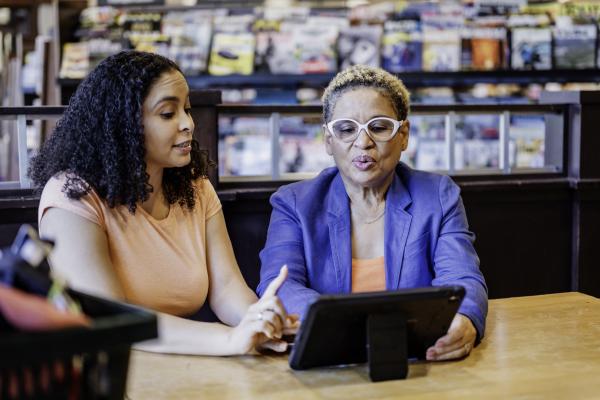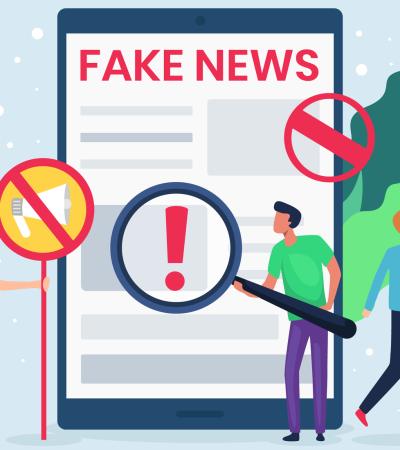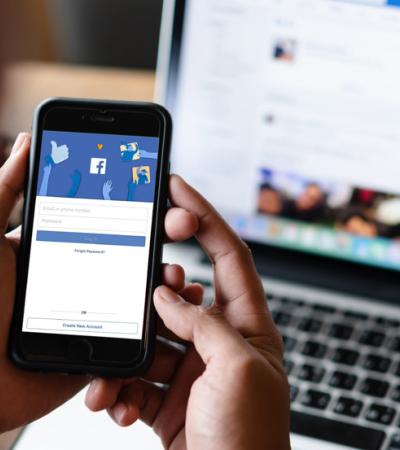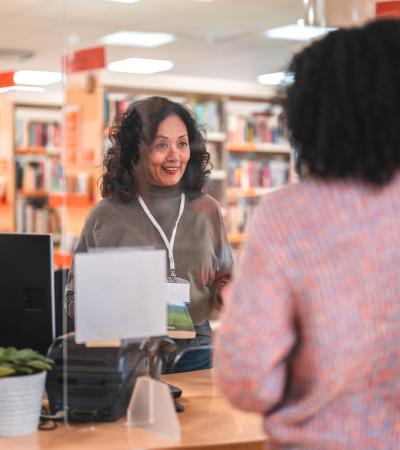
Planning and implementing effective media literacy programming can be challenging, especially when talking about a topic as complex as the architecture of the internet.
Some people simply are not interested, and because of the subject’s abstract nature, keeping audiences engaged when discussing it can be hard. Others may think they already have good media literacy skills and do not need to learn more. Others simply do not value these skills. In light of these challenges, how can libraries teach these skills?
>>The content of this article is taken from the free programming guide "Media Literacy for Adults: Architecture of the Internet">>
When incorporating media literacy topics into seemingly unrelated programs, start by thinking about successful events you have implemented in the past. What is a popular program that you can re-create with a slight media literacy twist? The next step requires some creativity and media literacy knowledge.
How can you add media literacy to a program you have already created? Because media literacy is functionally related to creating and sharing information, the program idea should have some connection to these topics to really work. Programs that can easily incorporate technology work well. Another approach is to take a large event you are planning and add a small media literacy element to it. For example, if you are hosting an exhibit on historical neighborhoods at your library, have a table or discussion that illustrates how architecture of the internet can affect a group’s historical representation as part of your event.
For more background information related to media literacy and the architecture of the internet, read the full guide.
Types of programs
By offering media literacy programs, libraries help patrons become more discerning and informed internet users, which is essential in today’s information-rich digital age. These skills not only benefit individuals but also contribute to a more informed and engaged society.
As patrons have varying levels of knowledge and experience with internet technology and terminology, it is essential to design programs that accommodate and support people of all abilities and backgrounds. Below are examples of library programs that teach media and internet literacy skills that allow patrons to think critically about how the architecture of the internet influences what they are seeing and doing online.
Book Talks and Book Clubs
While often a format to discuss current bestselling novels and timely topics, book programs can also be used to teach concepts related to the architecture of the internet. Books such as Tim Maughan’s Infinite Detail (The Guardian’s pick for Best Science Fiction Book of the Year) could generate a thought-provoking discussion around the importance of cybersecurity and privacy tools on the internet.
Library-Wide Read of Feed by M.T. Anderson: Host a book discussion that focuses on important media literacy and architecture of the internet principles. M.T. Anderson’s Feed (2002), a National Book Award finalist, is a young adult novel about a futuristic dystopian world where the brains of U.S. citizens are implanted with devices called feeds that connect to the internet. The book, a dark satire that explores what happens when a teen attempts to stop the connection, is a provocative exploration of media and corporate data mining and power.
Virtual Programs
Since the beginning of the COVID-19 pandemic, libraries have increasingly hosted programs in virtual spaces, reaching patrons from their home computers and on handheld devices. Virtual programs can be synchronous (with participants attending the session at the same time) or asynchronous (with learning occurring at different times). One example of a virtual program about the architecture of the internet is a webinar exploring the functionality of search engines or how algorithms work.
The Critical Media Literacy Collaborative: In response to the rise of misleading and false information online, Atkins Library at the University of North Carolina Charlotte created the Critical Media Literacy Collaborative (CMLC). One of the group’s goals is to conduct outreach events to spread awareness of the need for media literacy skills and to create strategies for effectively identifying, assessing, and sharing online information. (Find full program details on p. 18 of the guide).
Workshops and Courses
These topical learning sessions can introduce patrons to modern technologies (like coding classes, AI explorations, or virtual reality experiences) or cover internet basics (how to use search engines effectively, understanding website credibility, navigating social media, and strategies for creating online privacy and safety settings).
AI Shakespeare: Ask ChatGPT to write a Shakespearean play. Participants can work together to come up with starting points and help add details as ChatGPT writes. (Find full program details on p. 17 of the guide).
Blog-Writing Program: Host a blog-writing workshop and make search engine optimization (SEO) writing a part of it. Use this as an opportunity to explain how SEO works and illustrate the challenges that SEO creates when looking for information on the internet.
Community Events
Community events bring people together, often for a guest speaker or panel of experts. Consider partnering with a local tech company, university, media literacy organization, AI expert, or journalist to extend resources, services, and expertise.
Civic Lab: How Do We Know What News to Believe? The program Civic Lab: How Do We Know What News to Believe? introduced the concept of media literacy, highlighting its vital role in a society in which people trust one another. (Find full program details on p. 15 of the guide).
Meet Your Local Journalists: Host a discussion about what news goes into a printed newspaper versus a news site and why, including an exploration of how websites use SEO terms and tags to influence the way content is served up to readers in search results and social media feeds. This allows attendees to build trust with local news outlets and learn more about how media is disseminated through multiple outlets.
Succession Fandom Party: Invite fans of HBO’s Succession to the library to discuss this hit show, play games, and work out a business deal. As part of the program, discuss the media literacy components of media ownership and architecture of the internet by relating them to plot points in the show. Why would the Roys want to influence the media through their channels? How could they use their media outlets and social apps to manipulate the way consumers think?
Media Literacy Education in Libraries for Adult Audiences is a project conducted by the ALA Public Programs Office in collaboration with Knology, a nonprofit research organization that produces practical social science for a better world. It was made possible in part by the Institute of Museum and Library Services grant number LG-13-19-0089-19.



